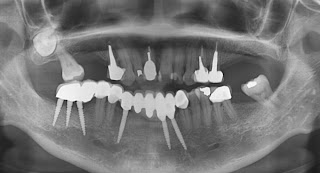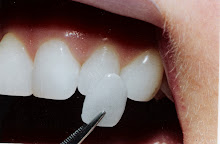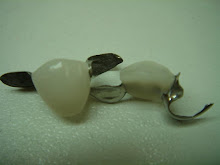 Here are the recent patient questions on dental implants:
Here are the recent patient questions on dental implants:Q = Question ; A = Answer
Q: What are my options for implants?
A: The cheapest and uncomfortable would be denture.
Q: How long do dental implants last?
A: As to the longevity of dental implants, honestly at the present time we cannot answer this question.
Q: How much does mini implant cost?
A: About $2500.
Q: Can i use my medisave to pay for it?
A: No. Unless you go for conventional implant.
Q: What is the dental implants procedure?
A: The first step in the decision for dental implants is to make an appointment with a qualified dentist for an evaluation. Dentist will examine your mouth and teeth and take a thorough medical and dental history. X-ray will be taken on the consultation day which will give the dentist a good idea of your bone density and the shape of your jaw. Dental implants is a process generally performed in the office with local anesthesia or light sedation to help make the patient more comfortable. Using precise, gentle surgical techniques, the implants are placed into the jawbone for 3 to 6 months while osseointegration takes place. This helps ensure a strong, solid foundation for replacement teeth. During this time, temporary bridges or dentures may be used to minimize any cosmetic or chewing inconvenience.
Q: Can i choose the type of anesthesia for dental implant surgery?
A: There's MUST on local anesthesia. But if you're require for general anesthesia, we will provide it for you too.
Q: Am i going to hospitalization?
A: Not necessary.
Q: What is the long-term success rate?
A: The simply answer to the long-term success rate of dental implants are that dental implants can fail, but fortunately very infrequently. Failure rates vary depending on the site in the mouth, whether they are placed into natural or grafted bone and whether the patient smokes. The overall success rates in natural bone is 95%, though this falls to between 85 and 90% in grafted bone. If a patient smokes it has been shown that they are statistically two and a half times more likely to have an implant fail than a non-smoker.

In order to better understand how mini implants work, it will be helpful to read about the history and current status of standard dental implants.
http://www.osseonews.com/standard-implants-vs-mini-implants-for-lower-overdenture/





















No comments:
Post a Comment